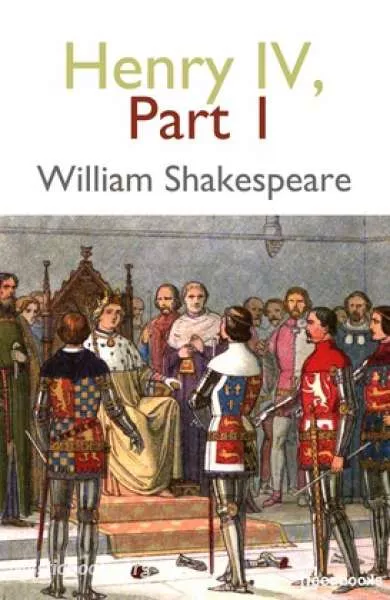
King Henry IV, Part 1
'King Henry IV, Part 1' Summary
Henry Bolingbroke—now King Henry IV—is having an unquiet reign. His personal disquiet at the usurpation of his predecessor Richard II would be solved by a crusade to the Holy Land, but trouble on his borders with Scotland and Wales make leaving unwise. Moreover, he is increasingly at odds with the Percy family, who helped him to his throne, and Edmund Mortimer, the Earl of March, Richard II's chosen heir.
Adding to King Henry's troubles is the behaviour of his son and heir, the Prince of Wales. Hal (the future Henry V) has forsaken the Royal Court to waste his time in taverns with low companions. This makes him an object of scorn to the nobles and calls into question his royal worthiness. Hal's chief friend and foil in living the low life is Sir John Falstaff. Fat, old, drunk, and corrupt as he is, he has a charisma and a zest for life that captivates the Prince.
The play features three groups of characters that interact slightly at first, and then come together in the Battle of Shrewsbury, where the success of the rebellion will be decided. First there is King Henry himself and his immediate council. He is the engine of the play, but usually in the background. Next there is the group of rebels, energetically embodied in Harry Percy ("Hotspur") and including his father, the Earl of Northumberland and led by his uncle Thomas Percy, Earl of Worcester. The Scottish Earl of Douglas, Edmund Mortimer and the Welshman Owen Glendower also join. Finally, at the centre of the play are the young Prince Hal and his companions Falstaff, Poins, Bardolph, and Peto. Streetwise and pound-foolish, these rogues manage to paint over this grim history in the colours of comedy.
As the play opens, the king is angry with Hotspur for refusing him most of the prisoners taken in a recent action against the Scots at Holmedon. Hotspur, for his part, would have the king ransom Edmund Mortimer (his wife's brother) from Owen Glendower, the Welshman who holds him. Henry refuses, berates Mortimer's loyalty, and treats the Percys with threats and rudeness. Stung and alarmed by Henry's dangerous and peremptory way with them, they proceed to make common cause with the Welsh and Scots, intending to depose "this ingrate and cankered Bolingbroke." By Act II, rebellion is brewing.
Meanwhile, Henry's son Hal is joking, drinking, and thieving with Falstaff and his associates. He likes Falstaff but makes no pretense at being like him. He enjoys insulting his dissolute friend and makes sport of him by joining in Poins' plot to disguise themselves and rob and terrify Falstaff and three friends of loot they have stolen in a highway robbery, purely for the fun of hearing Falstaff lie about it later, after which Hal returns the stolen money. Rather early in the play, in fact, Hal informs us that his riotous time will soon come to a close, and he will re-assume his rightful high place in affairs by showing himself worthy to his father and others through some (unspecified) noble exploits. Hal believes that this sudden change of manner will amount to a greater reward and acknowledgment of prince-ship, and in turn earn him respect from the members of the court.
The revolt of Mortimer and the Percys very quickly gives him his chance to do just that. The high and the low come together when the Prince makes up with his father and is given a high command. He vows to fight and kill the rebel Hotspur, and orders Falstaff (who is, after all, a knight) to take charge of a group of foot soldiers and proceed to the battle site at Shrewsbury.
The battle is crucial because if the rebels even achieve a standoff their cause gains greatly, as they have other powers awaiting under Northumberland, Glendower, Mortimer, and the Archbishop of York. Henry needs a decisive victory here. He outnumbers the rebels, but Hotspur, with the wild hope of despair, leads his troops into battle. The day wears on, the issue still in doubt, the king harried by the wild Scot Douglas, when Prince Hal and Hotspur, the two Harrys that cannot share one land, meet. Finally they will fight – for glory, for their lives, and for the kingdom. No longer a tavern brawler but a warrior, the future king prevails, ultimately killing Hotspur in single combat.
On the way to this climax, we are treated to Falstaff, who has "misused the King's press damnably", not only by taking money from able-bodied men who wished to evade service but by keeping the wages of the poor souls he brought instead who were killed in battle ("food for powder, food for powder"). Left on his own during Hal's battle with Hotspur, Falstaff dishonourably counterfeits death to avoid attack by Douglas. After Hal leaves Hotspur's body on the field, Falstaff revives in a mock miracle. Seeing he is alone, he stabs Hotspur's corpse in the thigh and claims credit for the kill. Though Hal knows better, he allows Falstaff his disreputable tricks. Soon after being given grace by Hal, Falstaff states that he wants to amend his life and begin "to live cleanly as a nobleman should do".
The play ends at Shrewsbury, after the battle. The death of Hotspur has taken the heart out of the rebels, and the king's forces prevail. Henry is pleased with the outcome, not least because it gives him a chance to execute Thomas Percy, the Earl of Worcester, one of his chief enemies (though previously one of his greatest friends). Meanwhile, Hal shows off his kingly mercy in praise of valour; having taken the valiant Douglas prisoner, Hal orders his enemy released without ransom. But the war goes on; now the king's forces must deal with the Archbishop of York, who has joined with Northumberland, and with the forces of Mortimer and Glendower. This unsettled ending sets the stage for Henry IV, Part 2.
Book Details
Authors

William Shakespeare
United Kingdom
William Shakespeare was born on April 23, 1564, in Stratford-upon-Avon. The son of John Shakespeare and Mary Arden, he was probably educated at the King Edward VI Grammar School in Stratford, where he...
Books by William ShakespeareDownload eBooks
Listen/Download Audiobook
- Select Speed
Related books
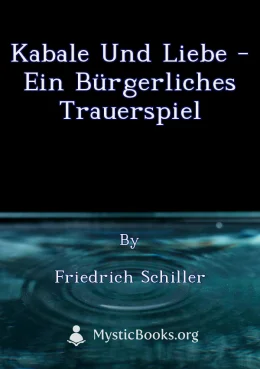
Kabale und Liebe - Ein bürgerliches Trauerspiel by Friedrich Schiller
Kabale und Liebe ist ein klassisches deutsches Drama, das die tragischen Folgen von gesellschaftlichen Konventionen und Intrigen aufzeigt. Der Konflik...
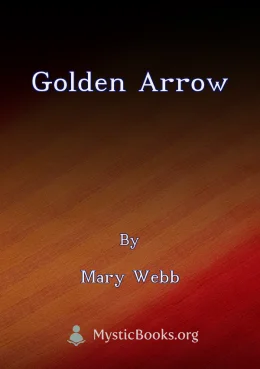
Golden Arrow by Mary Webb
Golden Arrow is a novel set in rural Shropshire, England, that explores themes of love, marriage, and the complexities of human relationships. The sto...
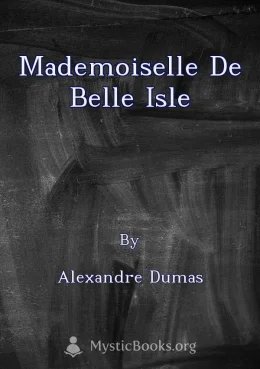
Mademoiselle De Belle Isle by Alexandre Dumas
Mademoiselle de Belle Isle is a captivating tale set in the decadent world of 18th-century French aristocracy. The story revolves around Mademoiselle...

By The Turtles of Tasman by Jack London
In 'By the Turtles of Tasman', Jack London sets the scene on the California coast at the turn of the century. Two brothers, starkly contrasting in cha...

Her Mother's Secret by E.D.E.N. Southworth
Odalite and Leonidas, long-time lovers, are on the verge of marriage. However, a past secret of Odalite's mother emerges, threatening to ruin their h...

Maria Chapdelaine by Louis Hemon
Maria Chapdelaine raconte la vie difficile d'une famille paysanne au Québec, au début des années 1900.

In diesem Erdenthal der Thränen by Stanisław Przybyszewski
In "In diesem Erdenthal der Thränen," Stanisław Przybyszewski explores the complex interplay of human relationships, the depths of the human psyche, a...
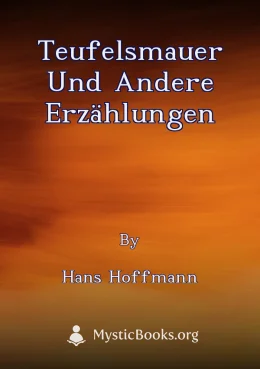
Teufelsmauer und andere Erzählungen by Hans Hoffmann
Hans Hoffmann's "Teufelsmauer und andere Erzählungen" is a collection of four short stories that delve into themes of the supernatural, the complexiti...

Heidi kann brauchen, was es gelernt hat by Johanna Spyri
Heidi ist zurückgekehrt zum Alpöhi. Der ist darüber so froh, dass er nach Jahrzehnten zum ersten Mal wieder die Kirche im Dörfli aufsucht, worüber die...
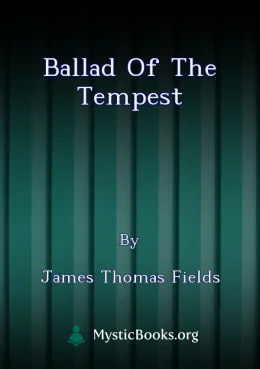
Ballad of the Tempest by James Thomas Fields
This book contains recordings of the poem "Ballad of the Tempest" by James T. Fields. The poem is a dramatic and emotional exploration of the themes o...
Reviews for King Henry IV, Part 1
No reviews posted or approved, yet...